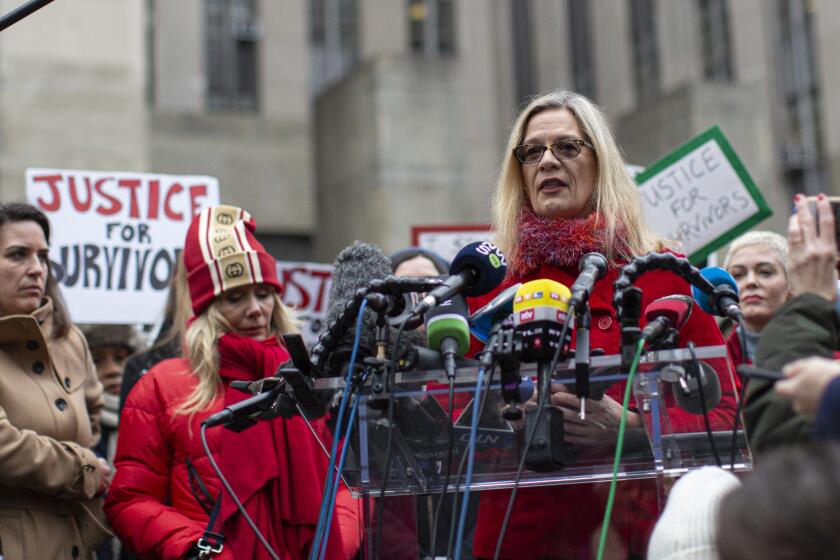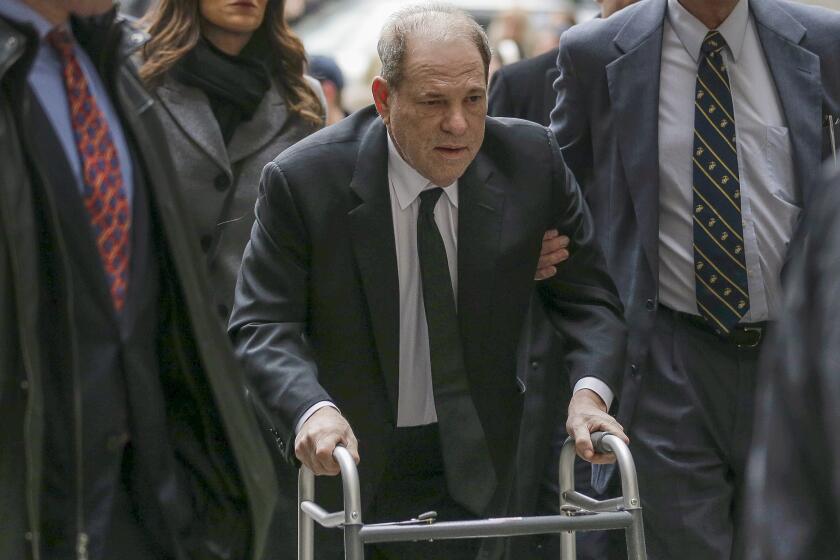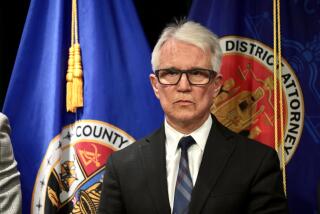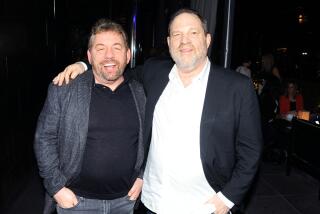Building a criminal case against Harvey Weinstein in L.A. was two years in the making
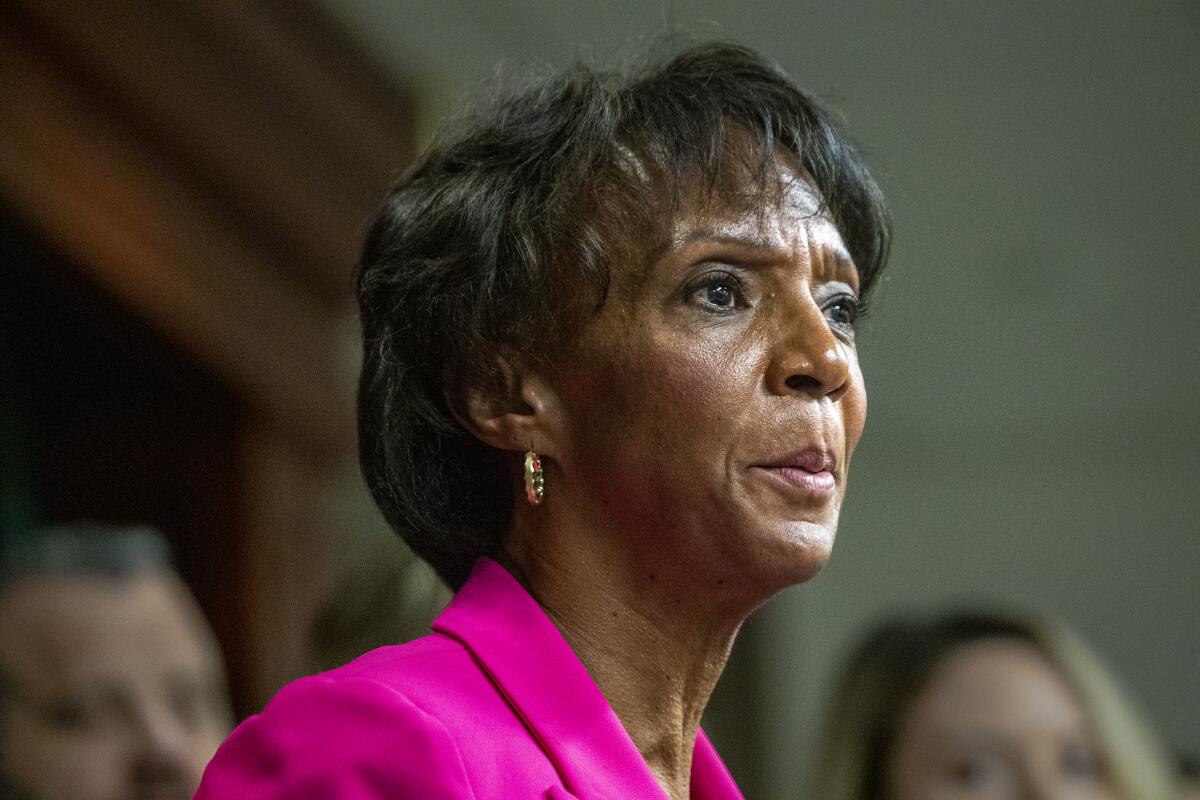
- Share via
The case against Harvey Weinstein was built by Los Angeles police and prosecutors over two years, and Los Angeles Dist. Atty. Jackie Lacey said Monday it was at times a wrenching process.
“We were working on investigating those cases. In regards to the victims in this case and other sexual assault cases, it was very challenging to get those victims to open up and tell us what they needed to tell us,” she said. “For some, it was very embarrassing, terrifying and so [we] told them we were just working to get the evidence we need to get to court.”
Weinstein has been charged with four counts of sexual assault in Los Angeles County, stemming from accusations brought by a pair of women who say Weinstein attacked them in hotels in Los Angeles and Beverly Hills in 2013. It was one of several allegations made against Weinstein but the first in Los Angeles to result in charges.
As Los Angeles investigated, New York authorities filed criminal charges of their own against Weinstein. His trial is scheduled to begin this week.
Law enforcement sources have told The Times L.A. investigators have spent months talking to potential witnesses, seeing how they could corroborate the women’s allegations, including through hotel video and records. Weinstein has denied any wrongdoing in the L.A. allegations and has pleaded not guilty to the New York charges.
The case is challenging because of the private nature of the alleged crime scene and by the fact that many women came to police sometimes years after the incident occurred. They took action after the New Yorker and New York Times published explosive stories in which women accused him.
Harvey Weinstein charged: Woman’s horrifying allegations laid out by prosecutors
Lacey said the investigative work paid off.
“The bottom line is we had been working on this case quite diligently in the last couple of years and turns out that coincidentally our case was ready to go this year and this was the first business day we could get everyone together that we needed in order to do this,” Lacey said.
Lacey added, “We do not want to interfere with the New York case. The judge there will have to make a decision whether he remains out on $2-million bail as we have filed an arrest warrant. With more victims and $5-million bail, he will have to decide whether the defendant is remanded or not.”
That is likely to trigger a courtroom hearing Tuesday in New York on whether Weinstein should be jailed or his bail increased.
In all, Lacey said, the district attorney’s office reviewed eight allegations against Weinstein. Prosecutors declined to bring charges in three cases because the statute of limitations had expired. Those cases involved an alleged rape in Hollywood in the 1970s, an incident where Weinstein was accused of exposing himself to a producer during a meeting in Beverly Hills in 2011 and an allegation of sexual battery on Christmas Eve in 2015, court records show.
Three other cases remain under review for possible charges, Lacey said.
Harvey Weinstein won’t face charges in three sexual assault cases. Three others are still under investigation.
Lacey said she expects other uncharged victims to also testify as witnesses to Weinstein’s predatory sex crimes in the past involving them. “They will be used to prove motive, opportunity, identity, things of that nature. We will be looking at what evidence we have. ... Please come forward, it is not too late.”
The charges, the first announced by Lacey’s office, stem from an investigation launched by a task force formed in 2017 to review sexual abuse allegations against high-profile entertainment figures. The task force has reviewed 40 cases against high-profile alleged predators in the last two years, but declined to prosecute in almost every instance because “the alleged crimes were too old to prosecute, or there was insufficient credible evidence to file,” Lacey said.
More to Read
Sign up for Essential California
The most important California stories and recommendations in your inbox every morning.
You may occasionally receive promotional content from the Los Angeles Times.
